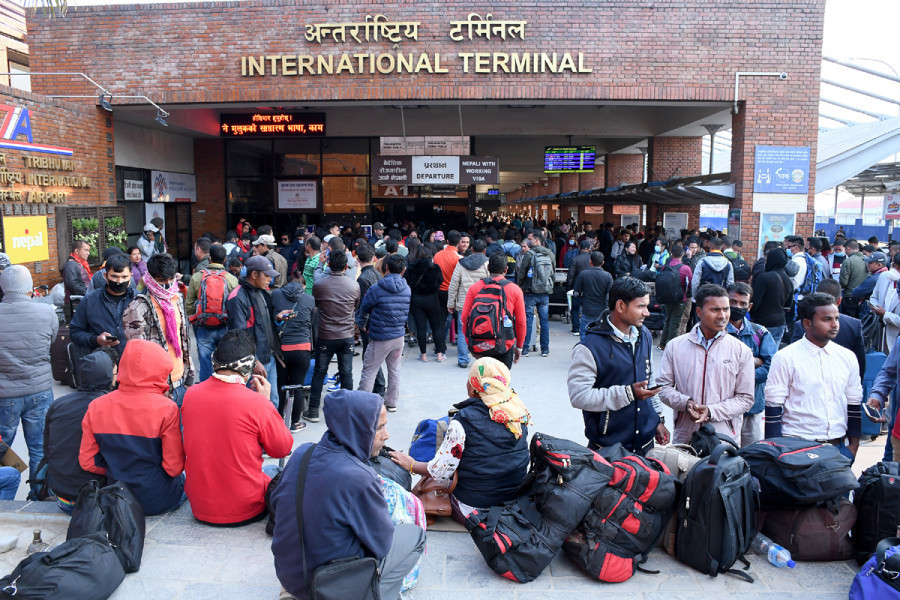Editorial
After Israel, Russia
Those determined to go abroad and ready to take colossal risks to realise their dream will always exist.
Until a couple of decades ago, the Israel-Palestine troubles seemed to be unfolding on a different planet. It was hard to relate to wars in exotic-sounding places like ‘West Bank’ and ‘Gaza’ even though Nepal itself was in the middle of an insurgency. No more. In the most recent Israel-Palestine conflict, Nepalis were put in harm’s way, with 10 of them dying and one being captured. In the aftermath of the October 7 Hamas attacks, Nepali media continue to be filled with stories of hardships of around 4,500 Nepalis now studying or working in Israel. Similarly, back then, news stories from Russia (with its Disney-esque Kremlin Palace) and the country’s periphery appeared no less exotic. Many Nepalis would first have heard of countries like Ukraine and Belarus through Olympics medal tables. Nepal, again, had little to do with these states. How have things changed! It emerged on Tuesday that three Nepalis serving in the Russian army had been killed while Ukrainian forces had captured another one in the ongoing war between the two countries. Just like Nepalis have ventured as far afield as Israel in search of lucrative jobs, some have even joined foreign armies for good pay.
This has put the Nepali state in a tough spot. When news surfaced of Nepalis serving in Russian and Ukrainian armies, the Ministry of Foreign Affairs had issued a statement on August 1. “The policy of the Nepal government does not allow Nepali citizens to join foreign armies,” it read, with the exceptions of Indian and British armies. The ministry requested people not to engage in security-related work in war-torn countries based on false information, adding that it would be difficult to come to their rescue if they got into trouble. Yet that has not deterred some intrepid souls from risking it all. Some videos circulating on social media claim Russian forces pay up to Rs400,000 a month—more than double Nepal’s per capita income. Following the death of three Nepalis, Russia has clarified that not all bodies can be repatriated. Moreover, one Nepali national, Bibek Khatri, is now in the custody of Ukrainian forces, and the Nepali government will have an arduous task negotiating his release. Separately, Foreign Minister NP Saud is going to Qatar, a mediator in Israel-Hamas talks, where he will discuss the release of Bipin Joshi, a Nepali student in Hamas custody.
There is no easy way to stop Nepali nationals from taking undue risks abroad. Reportedly, hundreds are leaving the country every single month to enter the United States through illegal routes, often by paying tens of thousands of dollars. A robust economy that creates enough good jobs at home would help. But then there will always be some people looking for greener pastures abroad and be ready to take colossal risks to realise their dream. This is the reality of most low- and middle-income countries around the world. One thing Nepal can definitely do is strengthen its diplomatic apparatus, and deploy its diplomatic resources such that it can quickly and efficiently respond to crises like hostage-taking. The foreign ministry, with its limited resources, is doing a decent job. But it can only do so much unless the political class internalises the need for—and is ready to invest in—enhancing Nepal’s diplomatic clout. Not only will this better serve Nepalis living and working around the world, it will serve national interest in many other ways.




 9.6°C Kathmandu
9.6°C Kathmandu














